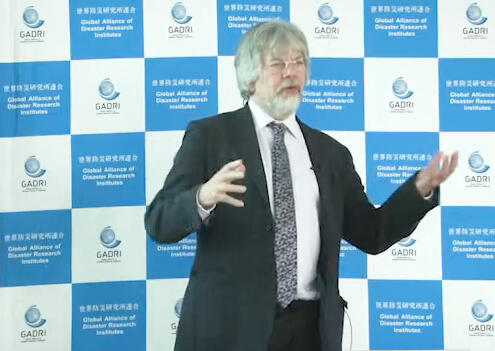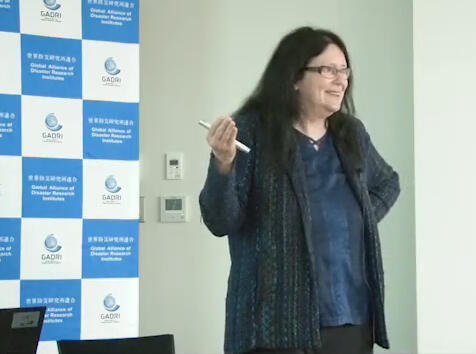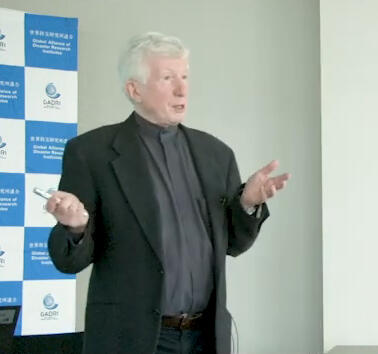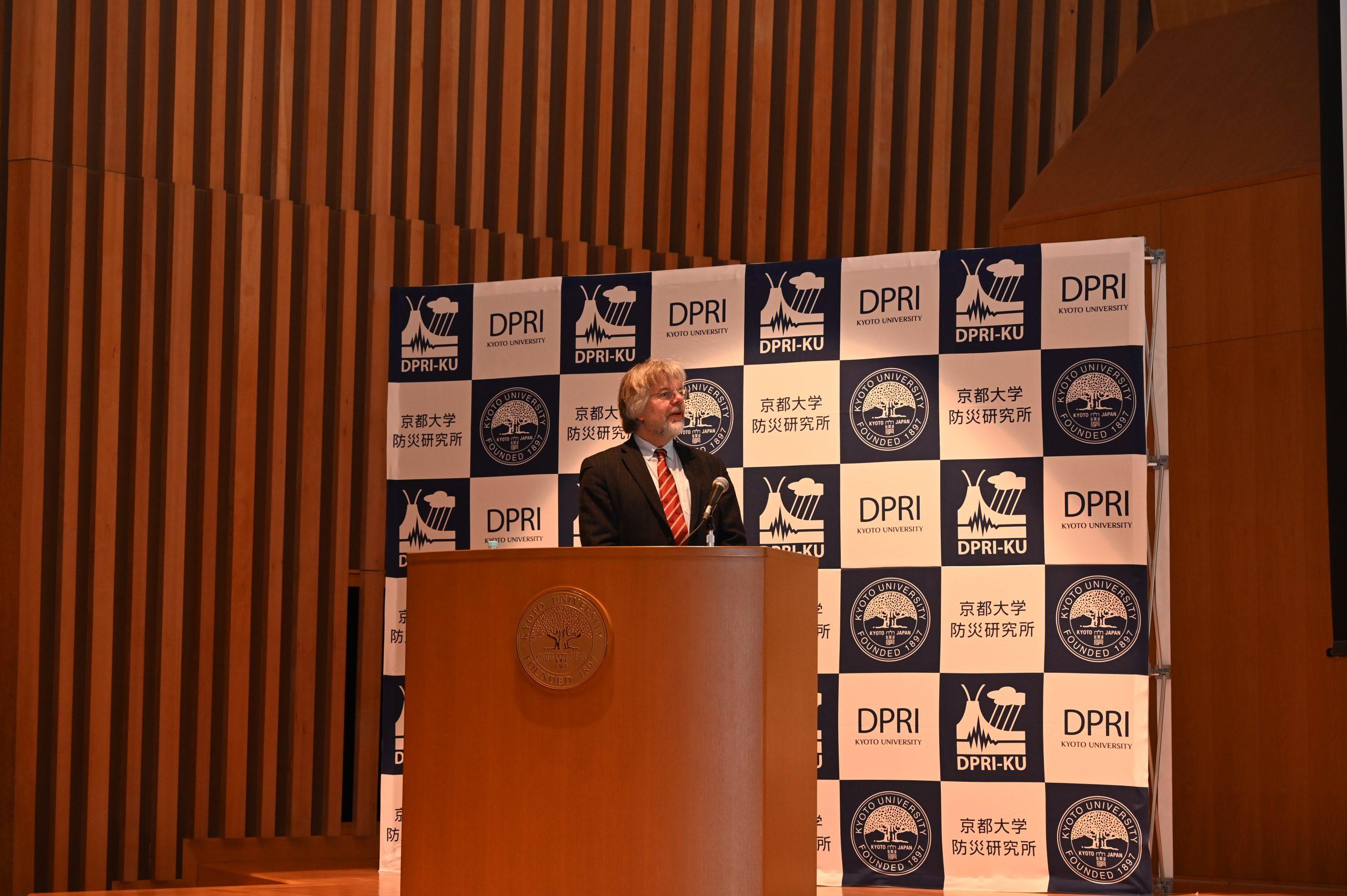
Prof. Andrew Collins, Leader, Disaster and Development Network, Northumbria University Newcastle, United Kingdom
Andrew Collins is Professor in Disaster and Development, Department of Geography. Beyond research, local teaching and management responsibilities, he represents disaster, development and health related initiatives internationally. He led the establishment of the world's first disaster management and sustainable development postgraduate programme launched in 2000, and Disaster and Development Network (DDN) launched 2004. Beyond his regular research, teaching and management responsibilities, he represents disaster, development and health related initiatives internationally. He gained his PhD from King's College London in Human Geography. Link
Lecture title: Systemising and De-systemising the Societal Contributions to Disaster Risk Reduction
The presentation focused on people centred approaches to disaster risk reduction and the idea of systems analysis and what it means by different types of approaches using systems and sometimes but non-systemic aspects as well. People are quite used to the idea of systems being fundamental to ther subject areas. There are many questions ahead as to why systems approach has got its limitations.
The lecture starts by looking at metanarratives there are about systems - there are world systems, and what is going on really in the subject area in terms of those world systems. It moves more towards looking at the management implications of the systems or non-systemic approaches; and and other different types of systems and how it interprets them. Then the lecture shifts beyond towards system-based risk assessment to thinking about how societies actually engages with risks. It doesn't always fit into a neat systemic type of analysis. There is an increasing interest in systemic risk itself and usually that leads to some of the difficult questions as to how different systems interact with each other. The questions that come out of this is where should be systematized and what is beyond the system; where might the non-systemic be useful also to the systems that are currently in use.
There is a tendency to accept as a way forward trying to work out what can be achieved beyond the standards of the systems approach to DRR, and there is the need to think about how to go about achieving it. The talk start to discuss about learning processes and the experiential learning and non-experiential learning, that has been writing about in recent years. It also discussed about some of the barriers there are to developing the approach. Ultimately this all have to be applied. How might one engage with this approach going forward. Lot of answers to this is by looking around at what is already going on in the society. The societal contributions are there naturally and what we are trying to do is interpret it so that we can remove barriers to advance forward.
View full lecture










